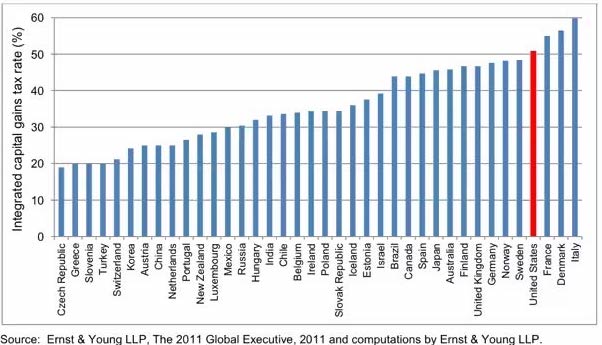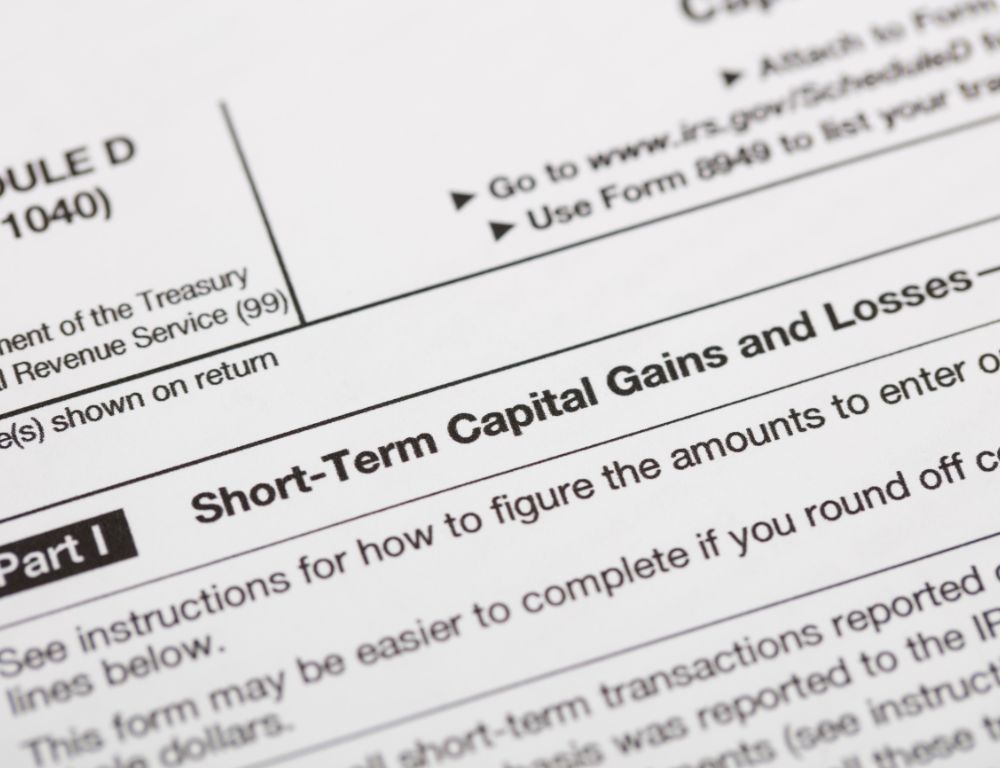Key Takeaways
- Capital gains tax in China applies to profits from selling assets such as property and shares.
- The provisions of Chinese tax law determine the capital gains tax calculation.
- Taxpayers must adhere to proper payment procedures and understand the legal framework to ensure compliance.
Capital gains tax in China significantly impacts domestic and foreign investors. In China, capital gains are usually regarded as the profit gained from the sale of an asset, such as shares or property, where the sale price exceeds the original investment cost. The tax applies to individuals and businesses, and the tax rates range from 20-25% depending on the asset’s nature and the ownership length.
Read on to find out how capital gains are taxed in China and what your company can do to ensure full compliance.
Overview of Capital Gains Tax in China
Capital gains tax is applied to the profit generated from selling assets or investments in China. It is considered part of the individual’s income tax and is taxed accordingly.
- Types of Assets: The assets generally include shares, bonds, property, and other financial instruments.
- Tax Rates: Capital gains are taxed at varying rates depending on factors such as the type of asset and the length of time the investment was held.
For Individuals:
- Resident Taxpayers: They are typically taxed on their worldwide capital gains.
- Non-Resident Taxpayers: Non-residents are taxed only on capital gains sourced in China.
For more information, consider the OECD’s analysis of individual capital gains taxes.
For Corporations:
- Capital gains from shares: As with other investment income, subject to a 25% corporate income tax rate unless reduced under a tax treaty.
- Capital gains on real estate and other assets: Taxed as ordinary business income, also at the standard corporate income tax rate of 25%.
The tax law in China provides certain exemptions and deductions:
- Small-scale Taxpayers May benefit from preferential policies.
- Incentives: Strategic industries and special economic zones may be eligible for tax incentives.
Proper tax filing and payment are crucial, as the Chinese tax authorities enforce compliance rigorously. The taxpayers are responsible for reporting and paying their applicable capital gains taxes. Failure to do so can result in penalties, including fines and interest on unpaid taxes.
Video: Capital Gains Taxes — How they Work
Calculating Capital Gains Tax
When calculating capital gains tax in China, one must determine the taxable amount and then apply the corresponding tax rate.
Determining the Tax Base
The tax base for capital gains in China is generally the difference between the selling price and the original purchase price of an asset. This figure is adjusted for related expenses, such as transaction costs or previously paid taxes.
- Compute Adjusted Cost Basis: Purchase Price + Improvement Costs + Transaction Fees.
- Calculate Gains: Selling Price – Adjusted Cost Basis
Applicable Rates and Brackets
The applicable capital gains tax rate in China depends on the type of asset and the taxpayer’s status. Currently, the following rates are often observed:
Individuals:
- 20% standard rate for gains from the transfer of property
- Various exemptions and reductions may apply, depending on the asset and duration of ownership
Companies:
- Rates vary depending on whether the asset is a fixed asset or not.
- For domestic companies, gains are often incorporated into regular corporate income and taxed at 25%.
| Asset Type | Tax Rate |
|---|---|
| Property – General | 20% |
| Corporate Fixed Assets | Included in Corporate Income Tax (25%) |
Taxpayers should consult with a tax professional to determine their tax liabilities, as China’s tax laws can be complex and subject to change.
Tax Obligations and Payment Procedures
Strict regulations govern tax obligations for capital gains in China and require meticulous adherence to filing requirements and payment deadlines.
1. Filing Requirements
Individuals and entities that have realized capital gains from transferring property, equities, or interests in China must file their tax returns with the relevant local tax authorities. They must provide detailed transaction documentation, including but not limited to sales contracts, payment receipts, and valuation reports.
Documentation must also establish the asset’s original value and the capital gain incurred. Non-resident taxpayers must file through an agent or the buyer if the non-resident taxpayer does not have an agent in China.
2. Payment Deadlines
Capital gains tax is due within seven days of the conclusion of the transfer agreement. In scenarios where transactions may lead to ongoing capital gains over time, taxpayers must file in advance each quarter based on estimated earnings.
Failure to pay within the allotted time frame results in late charges and interest accrued on the outstanding amount. Tax authorities may also pursue legal actions to enforce payment and compliance.

Legal Framework for Capital Gains Tax
Capital Gains Tax in China is regulated by laws that interface with international standards while reflecting the country’s specific socio-economic policies. The section provides insights into the governing rules that establish the tax obligations for capital gains, as well as the key legislative changes that have been recently enacted.
1. Governing Laws and Regulations
China’s capital gains tax is primarily governed by the Enterprise Income Tax Law and its accompanying Implementation Regulations. The law stipulates that resident and non-resident enterprises are subject to capital gains tax on the transfer of assets, including shares of Chinese companies.
- Resident Enterprises: These are taxed on their worldwide income, which includes capital gains.
- Non-Resident Enterprises: A foreign enterprise is taxed on its China-sourced income, such as gains from selling a Chinese company’s shares.
Other key regulations include:
- Circular 698: Provides specific rules on how to determine tax residency and the treatment of indirect transfers.
- The Double Taxation Treaties China signed with other countries can also affect how capital gains are taxed and are important for cross-border transactions.
2. Recent Amendments and Reforms
Recent legislative reforms have refined China’s capital gains tax landscape to improve the regulatory environment and align it with international practices.
- Circular 7 (2015): This amendment clarifies Circular 698, specifically on indirect disposals of Chinese taxable properties.
- Announcement 37 (2020): It introduces changes to reduce the tax burden on small and micro enterprises, encouraging growth.
The amendments demonstrate China’s commitment to adhere to the evolving standards of the global tax system while fostering a favorable investment environment.
Manage Capital Gains in China with a China Tax Partner
Companies doing business in China must comply with all Chinese tax laws and regulations, including those regulating capital gains.
MSA specializes in providing tax support to international companies operating in China. Chat with our China tax experts to ensure you fully comply with China laws.
FAQ
What is China's Capital Gains Tax Rate?
25%. This is the same rate as corporate and individual income tax in China.
Do I need to file tax returns for capital gains in China?
Yes. Any realized capital gains have to be documented and reported to China’s tax authorities.



